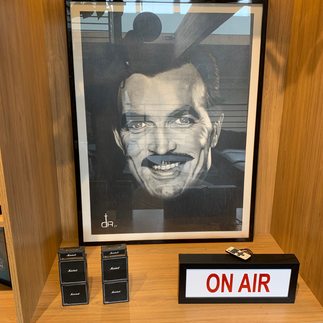Moved by Movember in Santa Monica!
- Jonathan Isserow
- Jun 7, 2023
- 2 min read
Updated: Jun 8, 2023

Michelle Carlson is the super bright, fast talking Director of Mental Health and Suicide Prevention at Movember USA. Meeting with her at the their headquarters in Santa Monica provided a unique glimpse into Movember USA’s strategic overview, underpinned by Michelle’s comprehensive insight into men’s mental health.
If you have heard of Movember then you know that its an Australian-based charity that is attempting to change men’s mental health. They fund and develop programmes centred around social connection, and helping men have difficult but important conversations. A considerable challenge facing men's mental health is that traditional social constructions of masculinity preclude help-seeking behaviours. There is a need to redefine the narrative of what it means to be a man that may include vulnerability and reflection. However — as Michelle notes — there is also a need to hold onto and celebrate strengths and capacities of men, which may serve as protective factors for their mental health. At the centre of this is the complex issue of what masculinity might mean in the Twenty First century. The intention of developing a multiplicity of narratives that can elasticate the notion of masculinity, is at the heart of this research. In discussion with Michelle, it was useful to note that although Movember's focus in increasingly on policy development and working more upstream, that all kinds of interventions are required and can be seen as preventative in nature. There is a need to work collectively, to build a critical mass, and ensure that the voice for men's mental health is heard. Similar to other services, any intervention or policy needs to be informed by research. Evidence-based practice and evidence informed intervention is vital to the long-term sustainability of the work. I was again reminded by Michelle of the need to work within the community to grow an intervention with intentionality. It might also be possible to work with existing organisations and expand their remit, rather than having to reinvent the wheel, so to speak. Further, a more nuanced, focused engagement with men at specific socio-cultural sites would be useful to grow community. Meeting Michelle I have been struck by her understanding that mental health is not just an individual responsibility but it also needs to attended to within community and social spaces. Thank you Michelle for the enormously rich food-for-thought that will take me some time to digest.





















Comments